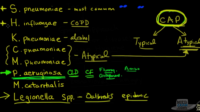Have some questions about nurse practitioners that you have always wondered about? Chances are you are not the only one asking those questions. Below are answers to some of the most frequently asked questions about nurse practitioners (NP)!
1. Can nurse practitioners prescribe medicine? Can they prescribe narcotics?
Yes, nurse practitioners can write prescriptions and prescribe medications, including controlled substances. However, since NP prescriptive authority is “solely regulated by state boards of nursing,” it varies from state-to-state. The American Medical Association has a chart that outlines the NP prescriptive authority of each state. As a nurse practitioner practicing in California in 2020, I can prescribe medication, including controlled substances, and currently have a supervising physician who co-signs my work as an advanced practice provider.
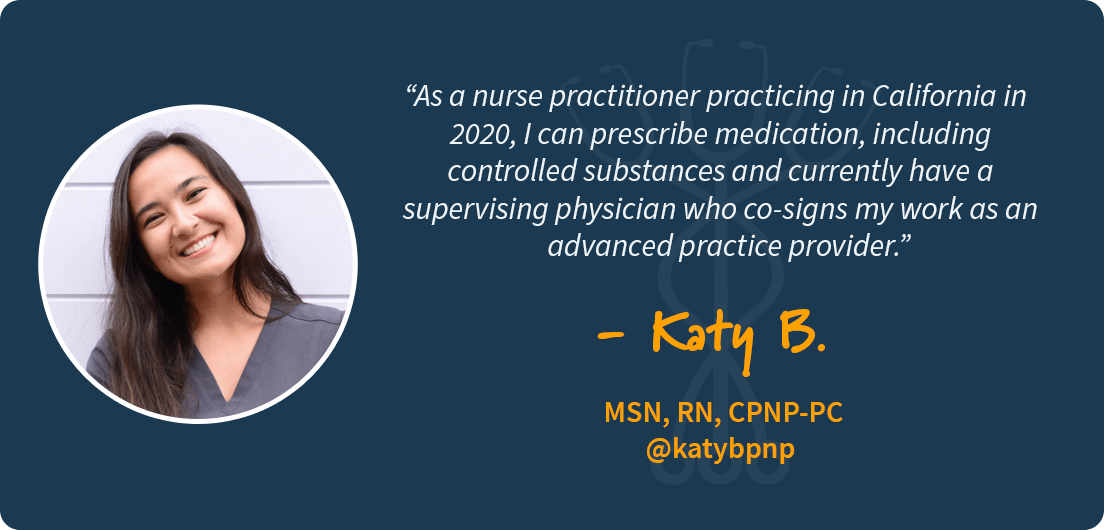
2. Are nurse practitioners doctors?
Although NP’s can obtain a doctorate in nursing, they are not commonly referred to as a doctor in the clinical setting. Since the public generally associates the word, “doctor” with those with an MD (Medical Doctor) degree, this question is likely asking if NP’s are considered medical doctors. NP’s and medical doctors are two different types of healthcare providers that undergo similar but different educational paths. So no, NP’s are not doctors but since some have doctorates, being called, “doctor” tends to be a statewide, institutional, and/or individual decision. However, the significant increase of doctoral-prepared nurses has sparked a debate on the use of the title.
To get a firsthand perspective from a doctoral-prepared nurse, we spoke with BoardVitals’ Director of Nursing Content, Claire Schwegel. Here’s what she had to say, “Nurse practitioners and doctors share many similar roles however, training, licensure, and privileging differ for each. While nurse practitioners can be ‘doctors’, that is to say, hold a doctorate, they are not physicians. For example, I pursued my doctorate (DNP, not MD) in the field of nursing, and when I teach at Columbia, my students address me as ‘Dr. Schwegel’. In clinical settings, I tend to go by ‘NP Schwegel’ as it can be confusing for patients and lead them to believe I am a physician. Overall, similar to physicians, nurse practitioners can evaluate and examine, diagnose, and prescribe treatments for their patients.”
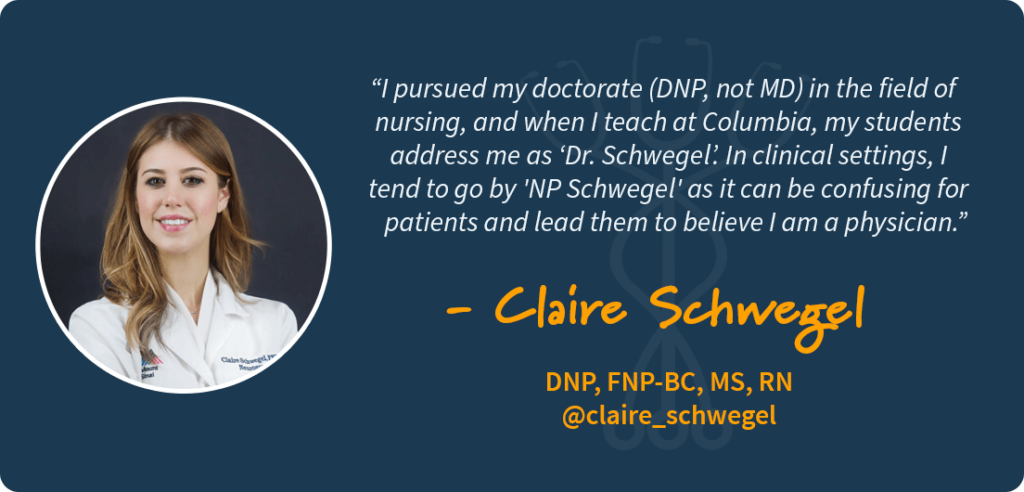
3. Can nurse practitioners deliver babies?
Although not technically considered a nurse practitioner, the only advanced practice nurses trained to deliver babies are Certified Nurse-Midwives (CNMs). However, Women’s Health Nurse Practitioners (WHNP) focus on caring for women, which includes family planning such as prenatal care, fertility evaluation, and after-pregnancy care. There are also Neonatal Nurse Practitioners (NNP), who provide care to infants with low birth weight, heart abnormalities, complications of prematurity, and other various complications.
4. Can nurse practitioners diagnose and treat conditions?
Yes, diagnosing and treating conditions is within the NP scope of practice. NP’s can even order diagnostic tests like X-rays or lab work.
5. Can nurse practitioners do surgery?
NP’s are able to perform certain procedures with the proper training/certifications, such as spinal taps and incisional closure. Furthermore, outside of the operating room, surgical nurse practitioners are responsible for surgical preparation and aftercare. In the operating room, their tasks will be dictated by the lead surgeon.
6. Do NPs wear white coats?
They can! It depends on the institution and patient population. White coats are popular for being worn by scientists and doctors. However, other healthcare professions such as pharmacists, nurse practitioners, physician assistants, and dentists wear them too. White lab coats are even part of Clinical Dress Codes of some DNP nursing programs. Personally, I wear a white coat occasionally in clinic but avoid wearing them in situations where my pediatric patient might be more afraid because of the white coat!
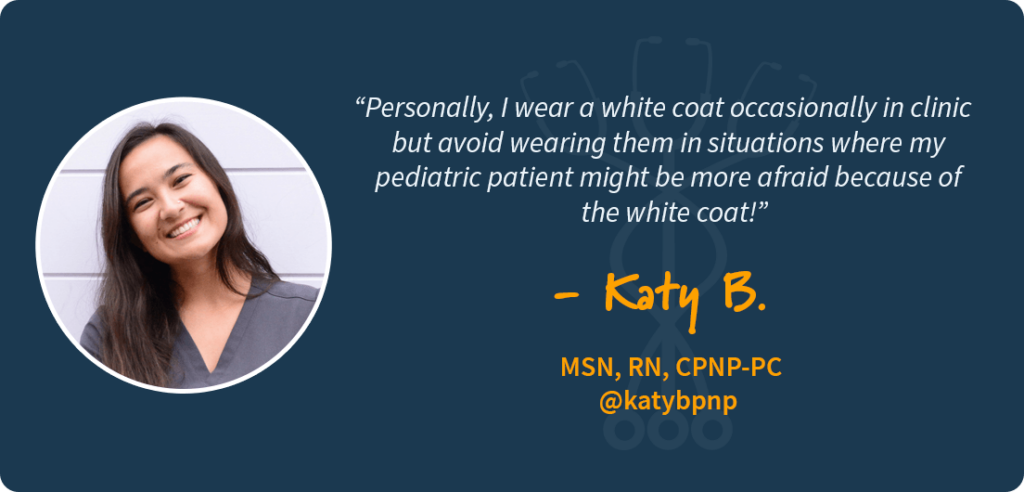
7. Can nurse practitioners practice independently? If so, where?
It depends on the state! Some states allow NPs to practice independently, while others require some form of physician supervision. Some states where NPs can practice independently as of 2020 are Arizona, Oregon, Vermont, and Maine, however the list of “full practice” states changes as state laws do. Since I practice in California, which is currently a “restricted practice” state, that means I have a supervising physician. However, laws are currently changing in states including California.
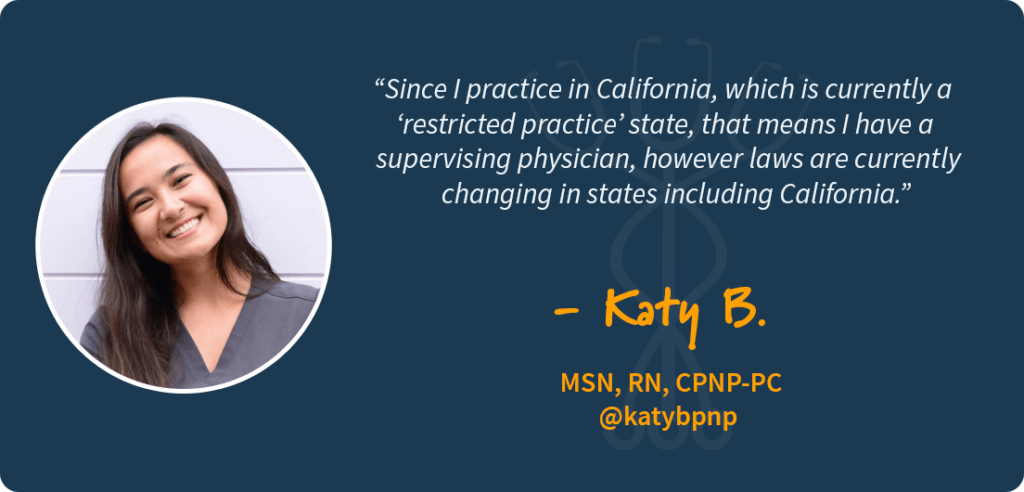
8. Do NP’s have NPI numbers?
Yes, they do! All healthcare providers, including nurse practitioners, who are covered under HIPAA (Health Insurance Portability and Accountability), must obtain a National Provider Identifier (NPI).
9. Which NP specialty makes the most money?
According to the 2023 Medscape APRN Compensation Report, Psychiatric Mental Health Nurse Practitioners are the highest-paid NP specialty, with an estimated annual salary of $134,000. Of note, years of experience, schedule (night shifts, holidays, weekend), and location are other variables that dictate the pay of any NP. States that tend to pay NPs the highest annual salary include California, New York, and Washington.
10. Where can NPs work? Can they work in hospitals?
Nurse practitioners can practice in many settings such as hospitals. Other healthcare environments NP’s can work in include community clinics, schools, public health departments, nursing homes, home health, private practice, and much more! As an NP who has experience working in various settings, BoardVitals’ Director of Nursing Content, Claire Schwegel said, “The flexibility that comes with being an NP is one of the main things that attracted me to the profession. There is the opportunity to work in an outpatient clinic, perform consults in the hospital, or even perform procedures in surgical areas. It’s exciting to think that the role of the nurse practitioner is ever-expanding with time, education, and training.”
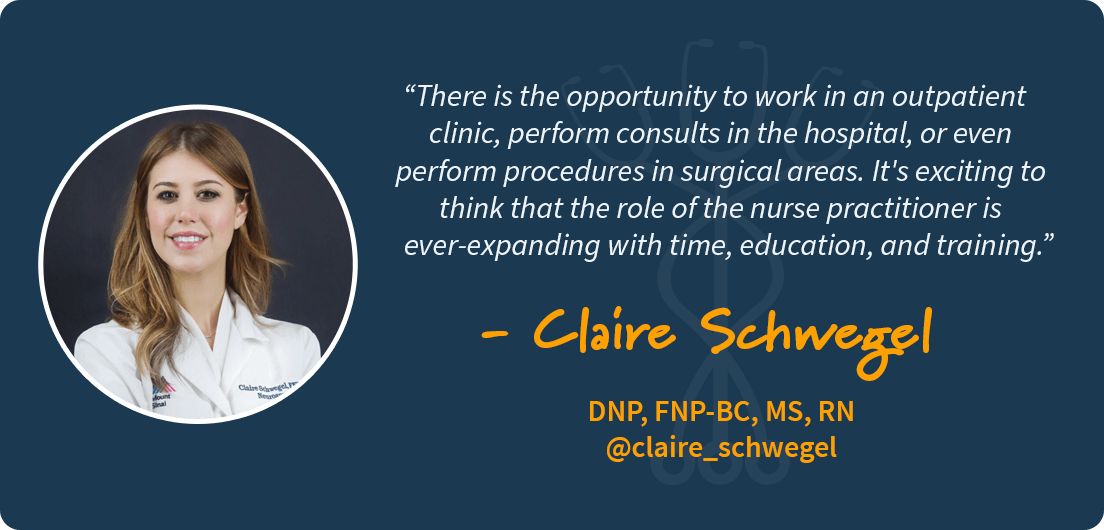
Want to learn more? Download this FREE eBook from BoardVitals, The Complete Guide to Becoming a Nurse Practitioner. It includes information written by nurse practitioners (such as myself) to help guide aspiring NPs on the road to a full-fledged nurse practitioner.
Or check out the BoardVitals blog for more articles on Advanced Practice Nursing.
Preparing for an upcoming nursing exam? BoardVitals offers the top nursing exam preparation questions targeted to the specific topics and formats of every major exam for RNs, LPNs, nurse practitioners, and other advanced practice nurses.


